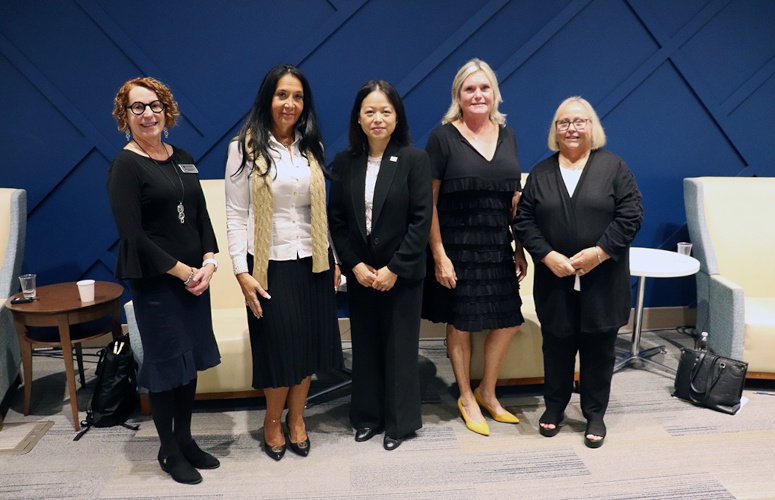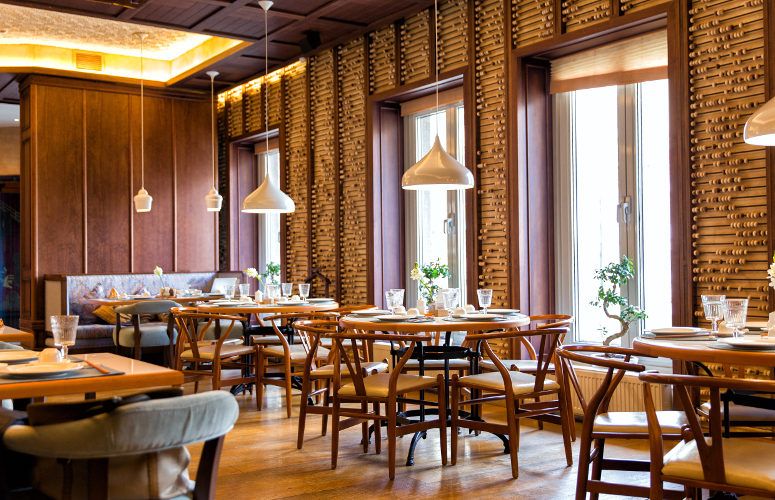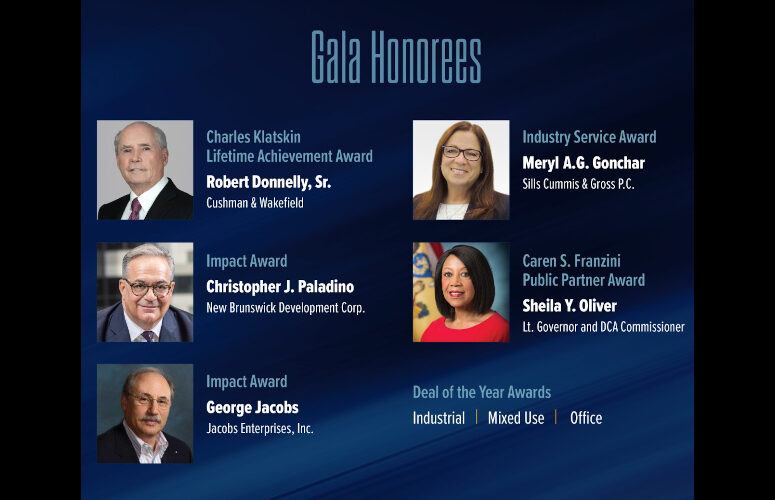
Summer Business OK, Despite Bad Weather and Inflation
By Mark Melhorn, Associate Director of New & Media Relations, Stockton University On Oct 6, 2023Bad weather, high gas prices and inflation had a negative impact on the Jersey Shore summer economy in 2023, but labor shortages weren’t as bad as predicted, visitor numbers were up and the casino industry is continuing to grow.
Those were some of the key messages at the fourth annual Jersey Shoreview, a panel discussion of regional business leaders sponsored by the Lloyd D. Levenson Institute of Gaming, Hospitality and Tourism (LIGHT) in Stockton University’s School of Business.
LIGHT’s Faculty Director Jane Bokunewicz moderated the panel that featured:
- Sandy Chu, financial and professional services sector lead, Strategic Sector Development for the New Jersey Economic Development Authority (NJEDA)
- Sharon Franz, sales and marketing director of Steel Pier
- Phyllis Lacca, president and owner of Masterpiece Advertising
- Diane Wieland, director of tourism for the Cape May County Department of Tourism
“We are seeing that we were up a little (over last year),” Wieland said, adding that Cape May County generated $5.2 million in occupancy tax just in July 2023, a 17% increase from 2022 and outpaced pre-COVID 2019. “Our businesses are saying (the summer) wasn’t great. They are saying they did OK. And OK is good with us.”
Wieland added that the county data showed an 8% increase in overnight stays year over year, but one of the impacts of inflation was that tourists didn’t stay in the county as long.
“In the past, we had 39% of our visitors stay seven days or longer, now we are seeing that down to 28%,” she said. “We’ve found that they want to go on vacation. They love the Jersey Shore, however they don’t have the money so they’ve changed their length of stay.”
As for the Atlantic City area, Lacca felt the summer was “hugely successful” and casino numbers and other data provided by Bokunewicz backed that up including:
- Total gross gaming revenue equaling $1.4 billion, up 11% from last year
- In-person gross gaming revenue equaling $811 million, up 1% from last year
- Casino employment hitting 24,282, up 3%
- Vehicles through the Pleasantville toll on the Atlantic City Expressway at 5.51 million, up 3.7%
Bokunewicz also said nongaming revenue is becoming more and more important to casinos. In 2017, revenue from gaming activity made up 61% of total net revenue with 39% from nongaming revenue streams. But as of year-end 2022, 55% of total annual casino net revenue came from gaming and 45% from nongaming sources. This 55% to 45% ratio continued through the second quarter of 2023.
“It’s getting closer to the model of Las Vegas where much of the revenue comes from nongaming attractions, and that’s a sign of the industry trying to diversify its offerings,” Bokunewicz said.
More focus on nongaming amenities leads nicely into more promotion of businesses outside of the casinos, Lacca said. Her agency does the marketing for the Casino Reinvestment Development Authority and Do AC, and she said focusing on that is the key to continued success in Atlantic City.
“People are looking for authentic experiences outside the casino walls,” said Lacca, who added that was the focus on their summer marketing campaign and led to pageview increases of 20% to 40% on the atlanticcitynj.com website.
“We are a short ride away. We want to make sure that people realize there is value coming to Atlantic City,” she said. “We made sure we really targeted the local market.”
One of this summer’s challenges, especially early in the season, was poor weather, Franz said.
“You can’t predict the weather, and that’s what was against us this year,” she said. “We were excited (heading into the summer), but weather really was an issue for us.”
However, she added that there wasn’t as much of a labor shortage for the Steel Pier since more J-1 visas were approved, allowing more students from outside the country to come for work.
Wieland said Cape May County continued to have some labor shortages and that translated into a lot of small businesses changing their models, including a focus on takeout or casual dining or cutting hours because it’s more difficult to pay employees due to the higher minimum wage.
Chu said the NJEDA recognizes the challenges for Jersey Shore companies and wants to help with grants, tax cuts and other incentives.
“My goal is to outreach further, deeper and wider, particularly in the Jersey Shore area,” she said. “The Jersey Shore is a huge area with huge competitive advantages. … If we can realize those potential opportunities that would create a win-win for everybody. … It’s a work in progress, but we are making nice progress.”
To access more business news, visit NJB News Now.
Related Articles:





